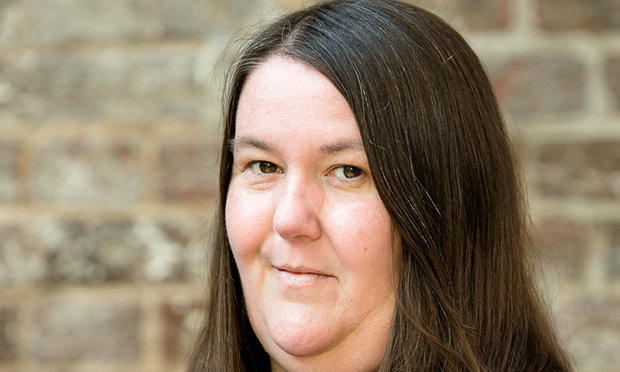
Obesity is at the top of the public health agenda, the social problem du jour, with its status as the ‘new smoking’ likely to be confirmed when the government publishes its child obesity strategy. But for Charlotte Cooper, an East London-based psychotherapist, academic and ‘fat activist’, there could be a simple answer to the obesity crisis – acceptance. Cooper has recently published a book Fat Activism: A Radical Social History, based on her doctoral research. The book aims to explain the ideas and history of fat activism to a public more used to hearing about fad diets and health kicks.
Charlotte, what is fat activism?
That’s a really enormous question. It’s quite hard to put in a nutshell but basically it’s a social movement based in a feminism that emerged out of the civil rights movement in Los Angeles in the 1970s. The book charts how this movement started and where it travelled and how it got to me. I found out about it when I was living in Aberdeen in 1989, so I was interested in how it travelled from L.A. in the 1970s to me and what happened to it afterwards, so what I did is interview a lot of people in my networks of fat activists and what they thought it was. The interesting thing was that no one said the same thing.
How did you first get into fat activism?
I’m 47 and I got into this when I was 16 and started talking to other people about their experiences. From there I started a group in 1992, and did a masters degree, which turned into my first book, Fat and Proud. Because I am fat I’m interested in what it means to be fat, especially in the culture that I live, and it’s one of those things that I suppose has turned into a lifetime’s work.
What types of things count as fat activism?
The popular view of fat activism is that it’s about loving your body and feeling good. Well it’s actually a lot more than that, that’s just the tip of the iceberg. It’s things like going on demonstrations, community building or trying to bring in anti-discrimination law. It can include cultural work, so performances, which is what a lot of my activism looks like. There are these smaller spaces I call ‘micro fat activism’, which refers to what takes place within conversations. It can include things like people going out for a meal together, eating in public and wearing types of clothes that don’t hide the body. Then there’s another type, which I call ‘ambiguous fat activism’. That’s the weird stuff, the stuff that doesn’t hit the mark, stuff that fails, stuff that doesn’t really have a purpose.
Is fat activism a feminist movement?
There are lots of different strands, and some are not feminist at all. There’s fat-shion, a portmanteau word of fat and fashion, which spawned this really incredible and popular movement of bloggers and people to do with fashion. For me this movement is great but it’s very much tied to shopping and consumerism.
Then there are other forms of fat activism like bear culture, which is a gay men fetishy subculture to do with sex mainly. It has a different genealogy but you can still see it as a type of fat activism really. So there are a lot of different worlds, and that’s what I’m trying to get across with the book – that fat activism is lots of different things.
Could you tell us more about your own activism?
The kinds of stuff I do now are far more to do with cultural works. I’ve been involved in a dance project called Swagga and we had a show at The Yard last summer that we’re probably going to tour. My background is in punk and DIY culture so I make zines. I’ve just finished making a zine called the Fat Vernacular which is slang of fat people and fat experience. What else do I do? I make films, and one of my films was shown in Istanbul in January, so fat activism isn’t necessarily about showing people what they should think but can be about making stuff too.
Fat Activism: A Radical Social Movement is published by HammerOn Press. RRP: £10 ISBN: 9781910849002
